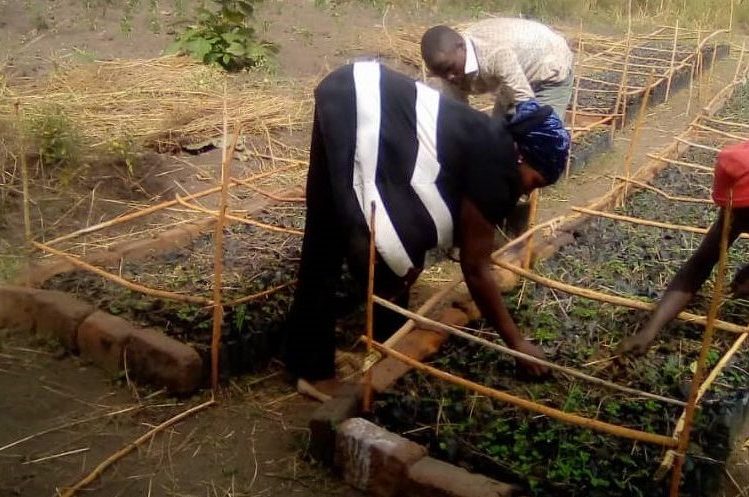
Turning The ‘Ides Of March’ To Save Our Environment
Even with the predictions of the calamity of climate change, it is worth celebrating the month of March which commemorates some of the most significant environment days including Day of Action for Rivers, Solar Appreciation Day, International Day of Forests, World Planting Day, and World Water Day. The Uganda Water and Environment Week in March is also a significant intervention that gives room for pause to ponder the best actions to make a positive change for our planet.
As forests and wetlands continue to get degraded, so does the quality of human life as the natural reservoirs and source of water get degenerated. Every negative action on the environment that is carried out results in pollution of land, air, and water leading to disease and decay for decades and generations to come. According to the Ramsar Convention, “natural wetlands are disappearing three times faster than forests.” The Convention on Wetlands is an intergovernmental treaty that provides the framework for national action and international cooperation for the conservation and wise use of wetlands and their resources with the number of Wetlands of International Importance numbered at 2,439.
The connectivity that biodiversity presents makes it impossible to separate the restoration of one area while leaving out the others. Water quality and production only thrives with a matching level of forest and vegetation cover, hence the interventions that are being carried out in different areas. Uganda Biodiversity Trust Fund (UBF) with a consortium of partners including Wildlife Conservation Society (WCS), Nature Uganda (NU) and Ecological Christian Organisation (ECO) are implementing a project to support restoration of wetlands, riverine, forests and ultimately the catchment areas and reservoirs that promote healthy production and retention of water.
This project is funded by the European Union under their Action on restoration and conservation, which is a response to the impacts of increased populations on the environment, natural resources, and improving the livelihoods of the refugee host communities in the regions of the mid-Albertine Rift and Northern Uganda. UBF identified and verified sites for restoration and activities to create sustainable systems of restoration and land management are underway. Many tree nurseries in the areas of operation were in dire need of revamping and thus capacity building to assist the operators to upscale and enhance production and quality of the tree seedlings to aid in restoration and economic development has been done.
Alice Zabib owns a tree nursery in Wolo Village, Odravu Sub County Yumbe District. This project is empowering her and has enabled her to provide better for her family and serve the community and the environment. The CEO of Mummy’s Safety Way Tree Nursery bed Enterprise is among the nursery operators that were identified for upscaling and improve the environment situation under the restoration intervention. “I’m now on a project of institutional greening at schools and the district sub county offices to encourage more people to plant trees,” says Alice and adds that she made a total of Ushs7,000,000 from the last planting season in 2021, as she was able to sell a better variety to people who have available land and are interested in greening the environment. The area being arid means that there is need for extra effort in greening their environment to have more rainfall and cooler temperatures. Alice is truly in Wonderland and says, “The training by UBF that I attended has helped me to acquire between 100,000 and 200,000 seedlings from just 20,000 before the EU project.”
The challenge of marketing is being tackled by expanding their network to other districts to have them buy tree seedlings. She has gone as far as Arua, Koboko and Moyo Districts to market the tree nursery to different communities in the hope of making more money and improving the livelihoods of women and environment. She noted that “the mentality of the people has to change as people are not exposed.”
Celebrating the International Day of Forest themed “Forests and sustainable production and consumption”, the European Union support to UBF and partners is enabling development of agreements with landowners to establish 182 hectares of woodlots, which will contribute to sustainable production and consumption of vital wood products. This is expected to reduce pressure on natural forests by providing communities with much needed economic, social, and environmental benefits such as increasing rainfall which is key to farming and will benefit rural communities. Memoranda of Understanding were signed with local governments of the five districts which have committed to rally support to the project in addressing the impacts of displaced populations on the environment, natural resources, and the livelihoods of the host communities.
The importance of forests cannot be downplayed, and according to the World Resources Institute, they can “positively impact the quantity, quality and filtration costs associated with a city’s water, sometimes even reducing the need for costly concrete and steel infrastructure.” (Lyons and Gartner, 2017) These environment significant days are symbiotic as the two, forests and water are major life resources that life on earth cannot survive without.
As part of the Uganda Water and Environment Week 2022, UBF urges everyone to play their part by financing, and committed long-term involvement to improve the environment sector. To achieve one of the objectives of the UWEWK 2022, exploring opportunities for enhancing financing of water, environment, and climate change programmes, some of the most hard-hit communities like the refugee hosting districts must be a priority. The theme this year “Water and Environment for Peace and Socio-Economic Transformation of Uganda” reiterates the message that conservation and economic development are not mutually exclusive and must be promoted at the same level for any impactful progress to be made in both areas.

